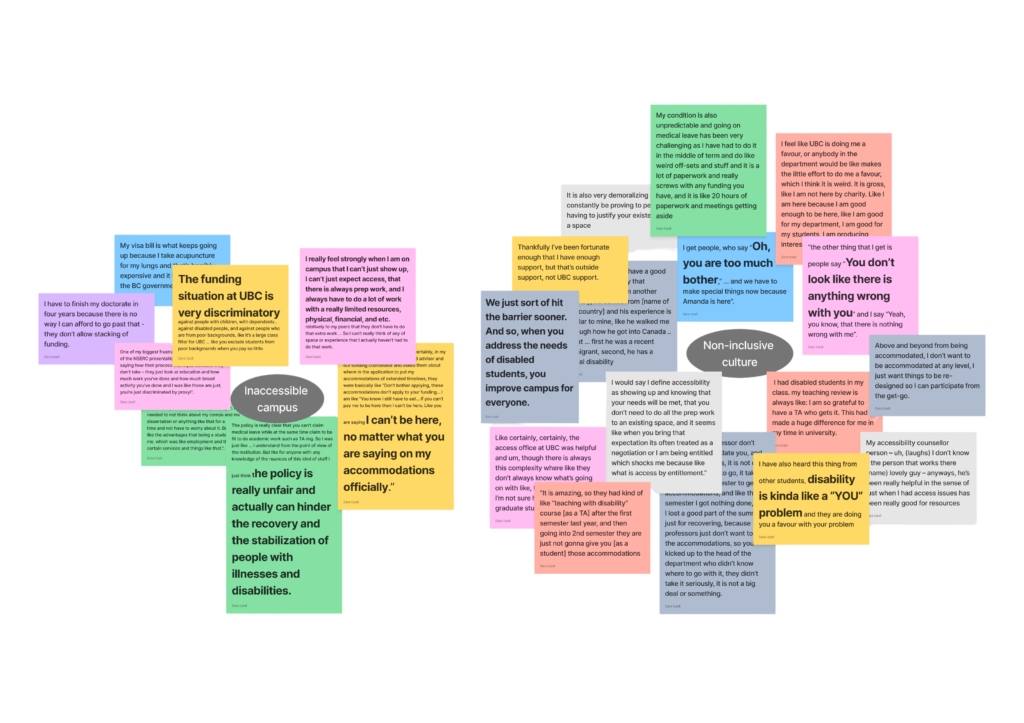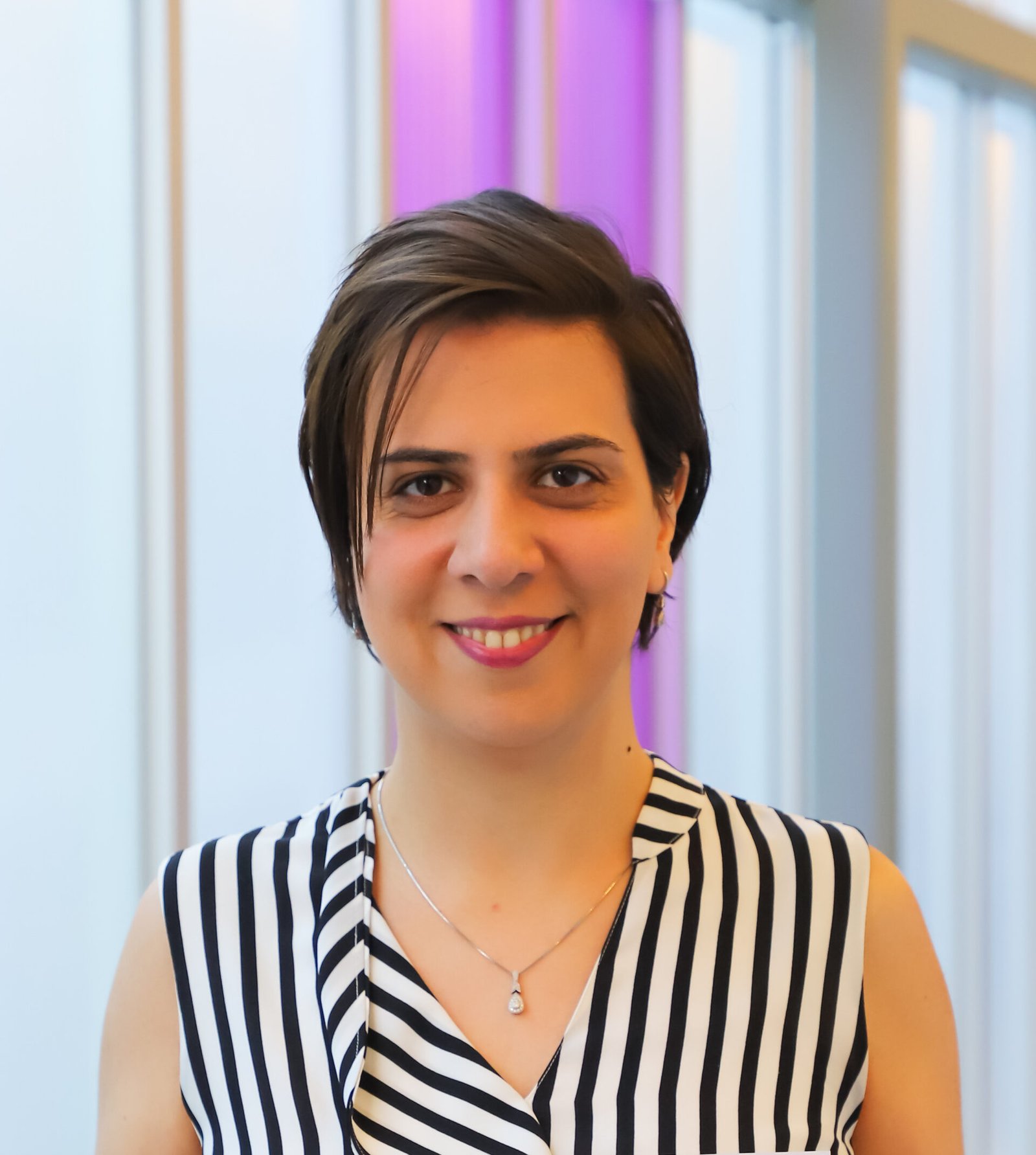
Cardan
“We just sort of hit the barrier sooner. And so, when you address the needs of disabled students, you improve campus for everyone.”
- Home
- Cardan
Overview
Problem
- Insufficient support for graduate students with disability
- Lack of understanding of their needs
Outcome
- Revised leave policy and removed associated fees.
- Established more scent-free environments across the campus.
- Raised stakeholder awareness of accessibility issues.
Client
University of British Columbia (UBC)
Project Description
Our study aimed to assess UBC’s accessibility for graduate students with disabilities. Through interviews with 8 participants, we uncovered the needs and challenges of students with disabilities including campus navigation and feelings of exclusion.
INFO
Team
Me, Yael Mayer, Tal Jarus
Role
Lead UX Researcher
Timeline
3 months
Study Method
Qualitative Interview
Research
How did we do it? Interviews
We engaged in conversations with 8 graduate students who identified as having disabilities through interviews and focus groups. These discussions provided valuable insights into their day-to-day experiences on campus and their interactions with university resources.
We started by using an affinity diagram to sort and group the data, spotting initial patterns and relationships, which gave us a broad view of the information and organized key ideas. Then, through thematic analysis of the transcripts, we identified recurring themes and trends, revealing the primary issues and opportunities for students with disabilities.

Key Findings
What did we find?
Graduate students with disabilities find UBC campus inaccessible due to safety issues, policy conflicts, miscommunication, and funding gaps.
Inaccessible Campus
Financial Barriers and Conflicting Policies
Conflicting policies hinder access to on-campus employment opportunities during leave of absence.
Miscommunication and Lack of Awareness
Lack of communication leads to a lack of awareness about accessibility procedures.
Miscommunication and Lack of Awareness
Lack of communication leads to a lack of awareness about accessibility procedures.
Unequitable Funding
Funding structures neglect extra expenses related to disabilities, exacerbating financial stress.
Non-inclusive Culture
Attitudes Towards Disability
Disability is often viewed as a “YOU” problem, leading to feelings of exclusion.
Legitimization Process
Students face emotional burden and hardship navigating the legitimization process for accommodations.
Legitimization Process
Students face emotional burden and hardship navigating the legitimization process for accommodations.
Intersectionality of Marginalized Identities
Experiencing multiple marginalized identities complicates the graduate school experience.
Opportunity
What did we do about it?
1
Collaborative Problem-Solving:
- Engaged with Janet Teasdale from UBC Student Services Office to understand the scope of the problem.
- Initiated discussions with Susan Parker (Library Administration) and Kavie Toor (Associate Director of Facilities) to explore solutions for implementing scent-free policies.
- Collaboratively devised strategies such as creating dedicated scent-free rooms and developing educational materials to promote awareness.
2
Advocacy and Policy Changes
- Leveraged insights from the study to advocate for policy changes.
- Presented research findings to student representatives in the UBC Senate, influencing the revision of policies regarding leave fees for graduate students in 2019 and 2020.
3
Knowledge Dissemination:
- Published study results through platforms like the Graduate Student Society (GSS) and Alma Mater Society (AMS) at UBC to raise awareness about the challenges faced by students with disabilities.
Retrospective
Listening to students with disabilities at UBC was both touching and enlightening. It highlighted the challenges they face compared to the opportunities we often take for granted as able-bodied individuals. This study emphasized the need for empathy in design and the importance of advocating for policy changes and awareness to create a more equitable campus environment.
For more info visit this link: https://www.ams.ubc.ca/student-life/stories/the-needs-of-students-with-disabilities/
